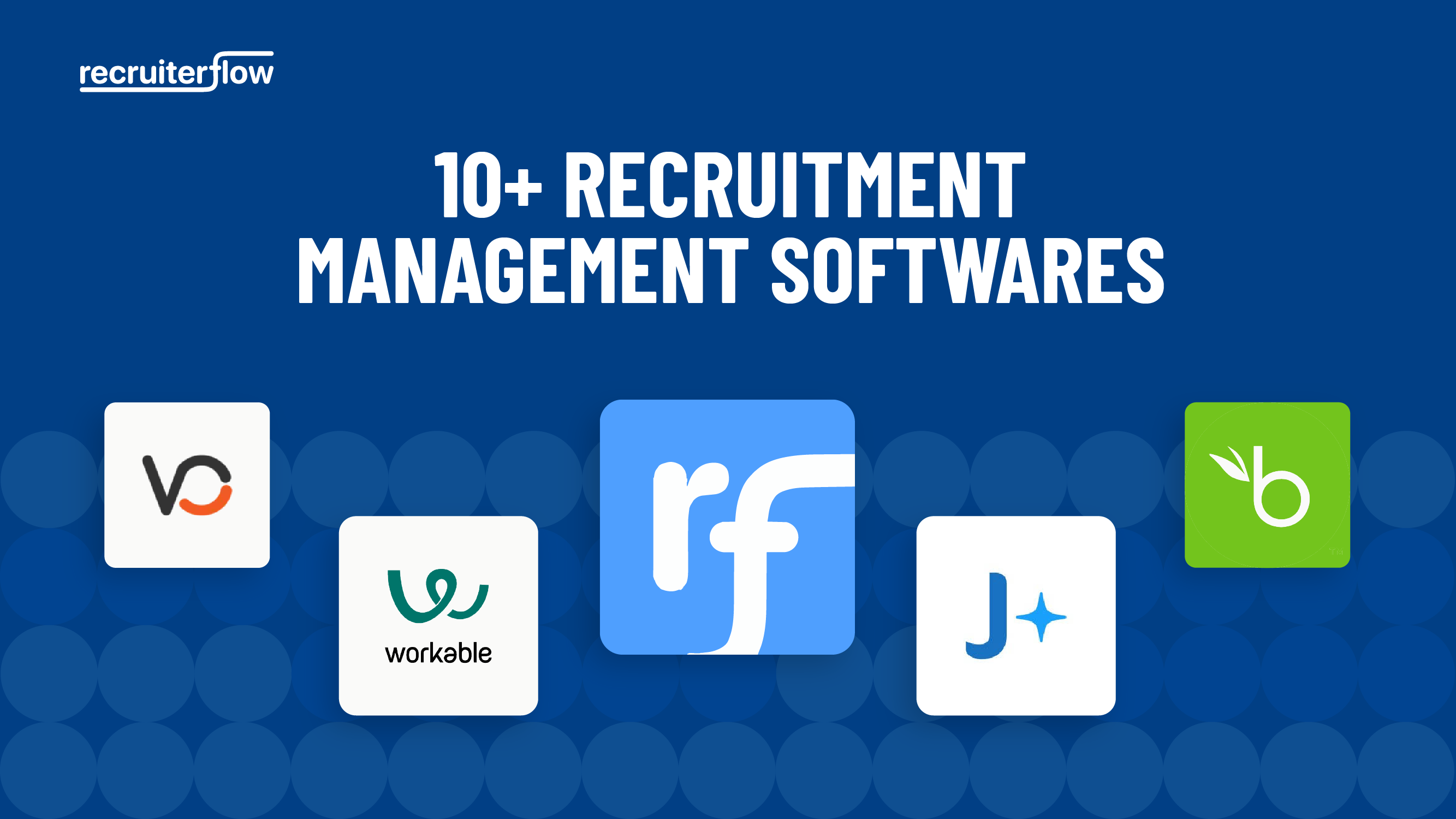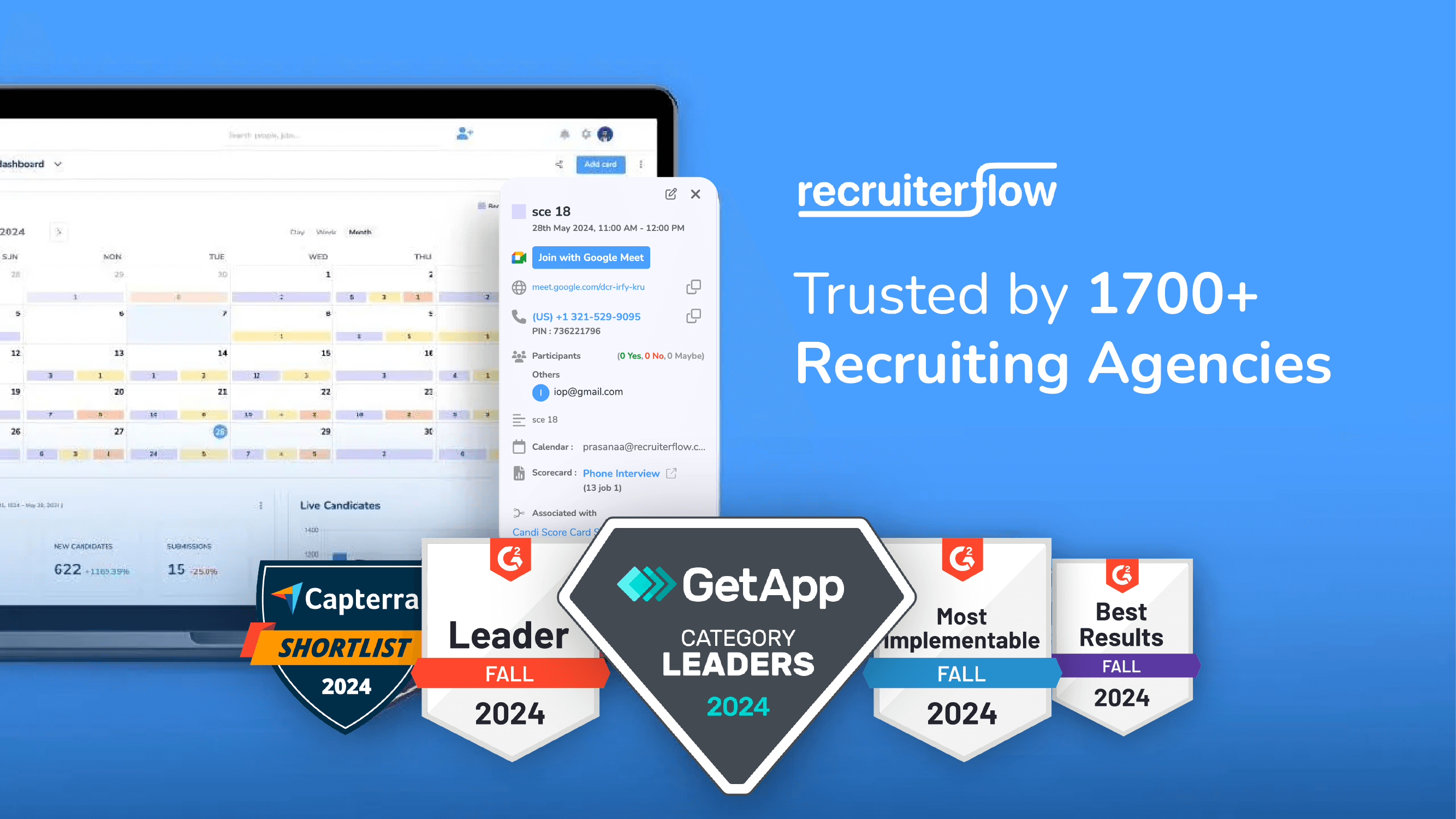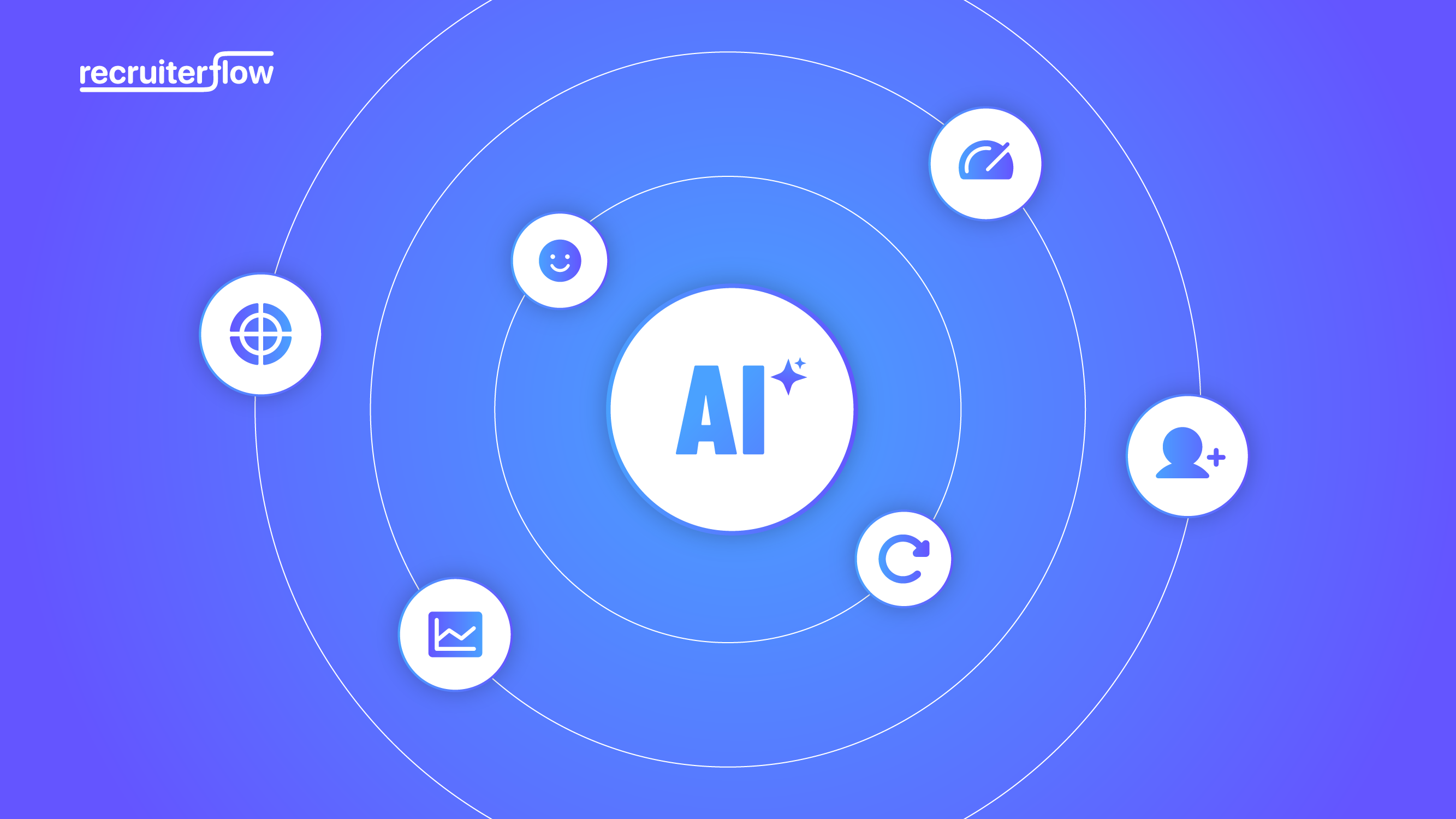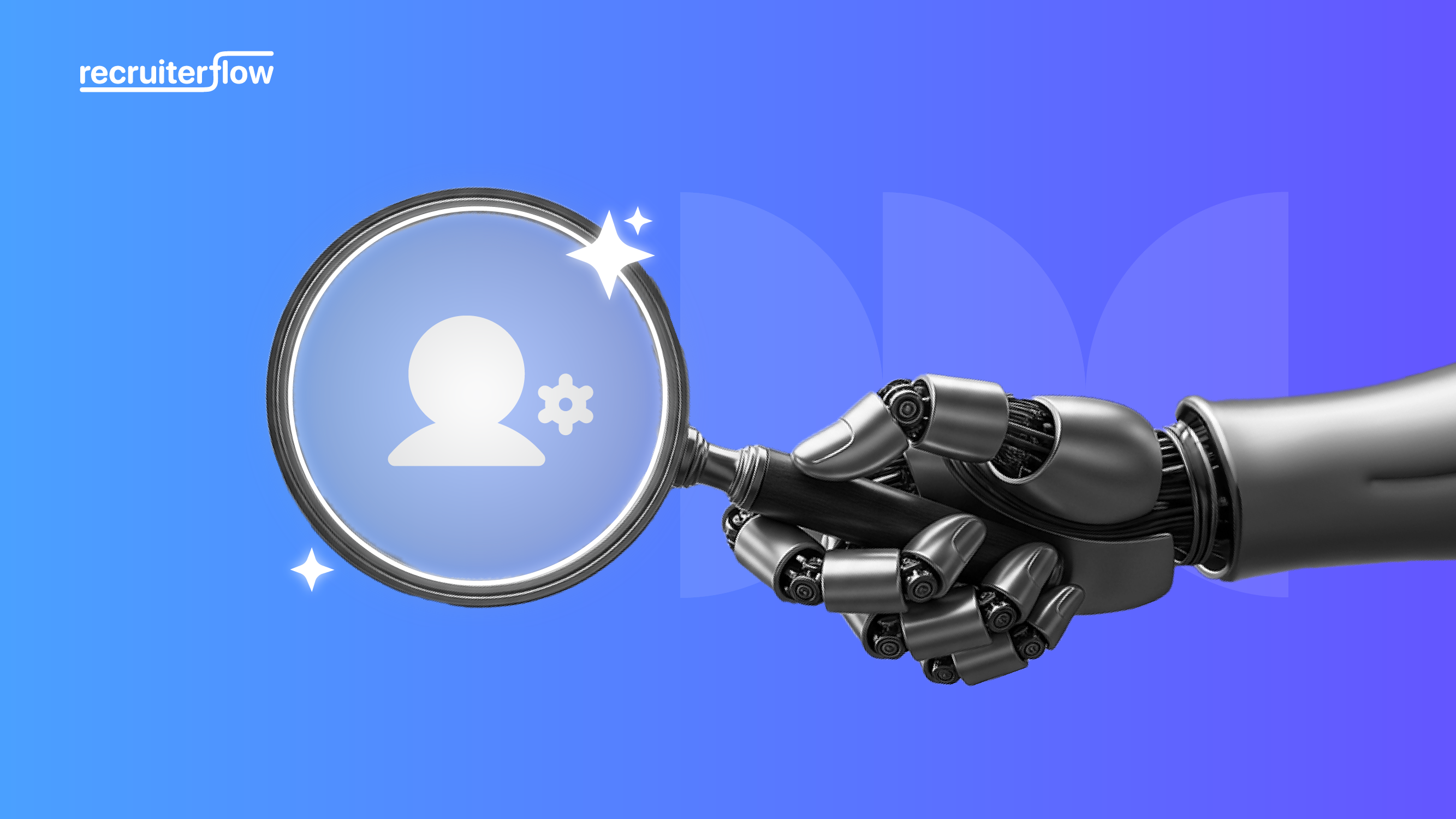
Recruitment Best Practices Shaping 2026

Recruitment best practices for agencies in 2026 emphasize strategic foresight over tactical execution.
The drive for specialized skills development continues to gain momentum and clients now seek partners who provide competitive advantages rather than simple candidate placements.
Recruitment agencies need to modify their strategies and adopt new methods that match industry trends to remain competitive while providing outstanding value to their clients.
This article explores the best recruitment practices that will drive success in 2026 and offers practical guidance for agency recruiters who want to improve their operations through relationship building and technology implementation.
Recruitment Best Practices for 2026
The following outline presents recruitment best practices that are leading the industry into 2026.
AI Integration
The recruitment industry has progressed past basic AI tool implementation to achieve comprehensive workflow transformation.
Experts refer to the current stage of AI adoption as the “reshape” phase because AI technology has moved beyond supplementing existing processes to completely transforming them.
“AI isn’t new anymore — it’s everywhere. But how it’s being integrated into hiring is evolving rapidly,” notes a recent LinkedIn report on hiring trends.
Agency recruiters now implement AI beyond basic resume scanning and chatbot communications.
In 2026, AI-driven sourcing is vital because algorithms can evaluate resumes and predict candidate suitability while conducting initial interviews.
What this means for your agency: It’s time to implement complete AI solutions to manage recruitment tasks while allowing teams to concentrate on building relationships and strategic consulting.
Recruiterflow is a platform that delivers AI-driven recruitment automation solutions tailored to the needs of expanding agencies, demonstrating AI’s pivotal role in today’s recruitment strategies.
Also Read:AI Recruiting in 2026: The Complete Guide
Skills-Based Hiring Takes Center Stage
Organizations are now focusing more on evaluating specific required skills for roles rather than relying on traditional credential-based recruitment methods.
Between 2018 and 2023, this recruitment strategy experienced a 21% growth in demand, especially in AI-related job positions.
Smart agencies perform detailed skills gap analyses to assist clients in pinpointing which capabilities their current workforce lacks. This includes:
- Reviewing performance data and manager feedback
- Using AI-driven tools for workforce skill mapping
- Filling workforce capabilities where key skill deficiencies have been determined
Prioritize employee abilities over their previous experience and academic credentials. Your client services become more valuable when you guide them in forming teams who are truly ready to tackle business obstacles.
Evolving Role of the Recruiter
In 2026, recruiters are experiencing major changes in their professional roles.
As AI takes over administrative functions, recruiters evolve into strategic partners who offer valuable insights and build relationships to develop hiring strategies.
“The U.S. hiring market is heading into a significant transformation in 2026, with a shift in labor supply-and-demand dynamics,” according to industry experts.
The increasingly tight labor market creates more challenging hiring processes, which demand strategic approaches while showcasing the critical role of skilled recruiters who can manage these obstacles.
Agency recruiters need to become talent advisors instead of remaining basic talent suppliers. Work towards building consultative abilities and specialized industry knowledge that enhance AI capabilities instead of acting as competition.
Innovative Assessment Methods
The traditional hiring practices are being replaced by more practical evaluation methods.
The business sector has widely adopted micro-internships as a way to assess candidate potential through practical work experiences in 2026.
Agency recruiters can expand their service offerings by adding micro-internship programs. The method allows clients to evaluate talent before making hiring decisions while providing candidates with valuable work exposure.
Recruitment processes now incorporate virtual reality as one of their cutting-edge tools. Through VR technology, candidates can experience company culture and environment before their first office visit.
Forward-thinking recruitment agencies now use VR technology to improve candidate engagement and optimize candidate-company matching.
How Can Agencies Enhance Client and Candidate Relationships and Communication?
Transparent Client Communication
Thriving partnerships between clients and recruitment agencies depend fundamentally on effective communication.
Regular updates must serve as the fundamental element of your client communication strategy to establish trust and maintain alignment.
“Allocating time for communication keeps recruitment strategies aligned with the client’s objectives. This approach facilitates quicker decision-making and enhances the hiring process,” notes The Recruitment Alternative, a leading recruitment service in New Zealand.
Communicate beyond just providing status updates by revealing the internal processes of your work operations.
Clients remain largely unaware of the broad scope of tasks recruitment agencies perform, such as background checks for instance.
Clients develop greater trust in your methods when you effectively communicate these processes because they understand the value you provide.
Personalized Candidate Experience
In 2026, personalization in candidate communication is essential and mandatory.
When you customize your messages to match candidates’ skills and interests, along with potential roles, you strengthen your relationship with them.
Recruiting CRM tools such as Recruiterflow help you to divide your talent pool into segments for personalized messaging that matches each segment’s specific interests and abilities.
Don’t underestimate the power of personal connection. Bonding with job candidates becomes stronger when you share pertinent stories or discover shared interests throughout your interactions.
Great recruiters stand out from average ones because they deliver personalized interactions in an industry that relies more on AI technologies.
Acknowledge Every Applicant
In 2026, recruiters must acknowledge every applicant who submits their application no matter the hiring decision. Applicants receive consistent updates on their status while receiving feedback when applicable.
The candidate you reject today could become your ideal candidate for a different role tomorrow or become an important referral source.
Your reputation grows stronger and your network expands when you respectfully treat all applicants alongside maintaining clear communication channels.
Build Long-Term Relationships
Leading agencies in 2026 focus on developing candidate and client relationships as investments for the future, which go beyond immediate transactions.
Develop a structured process for regular communication with candidates who were placed and follow up with clients during periods between recruitment engagements.
Recruiters should consider establishing a formalized “check-in” program to reconnect with placed candidates at specific intervals of 30 days, 60 days, and 90 days.
Successful placements benefit from this approach, which also builds stronger relationships that foster future business opportunities.
What Technology and Tools Can Improve Recruitment Efficiency for Agencies?
Comprehensive CRM Platforms
A strong CRM platform serves as the foundation of effective candidate relationship management strategies in 2026.
Choose recruitment software that provides essential functionalities such as automated messaging systems, candidate tracking and tailored communication instruments.
Your recruitment operations will become more efficient with the proper CRM, which helps candidates access relevant information at the right time.
The system enables you to divide your talent pool into segments and send automated messages that align with each group’s specific interests and skills.
AI-Powered Recruitment Platforms
AI capabilities in recruiting tools are bringing significant changes to agency operations throughout 2026.
Recruiters can save a total of 20 hours each week by utilizing advanced tools to automate job descriptions, together with outreach and application management tasks.
Recruiterflow delivers AI-powered recruitment automation and candidate matching designed specifically for agency workflows, whereas alternative platforms include resume scanning capabilities along with preliminary interview functions.
Agencies that use these technologies can process more applications at higher speeds and achieve better candidate matches than traditional methods enable.
Applicant Tracking Systems (ATS)
Recruitment agencies that handle multiple clients and job positions need an effective Applicant Tracking System to function properly.
Selecting an advanced ATS solution that matches your agency’s requirements will lead to significant improvements in both organizational efficiency and process organization.
The latest applicant tracking systems extend beyond application management since they feature integration with recruitment tools and candidate relationship management, while offering recruitment analytics and communication capabilities.
Workforce Planning Tools
Agencies that seek to deliver strategic value to their clients now depend crucially on advanced workforce planning and headcount forecasting software.
The tools provide precise forecasts about talent needs by analyzing business targets and growth strategies.
By assisting clients in adopting proactive talent acquisition strategies, agencies can establish themselves as strategic partners instead of mere service providers.
When organizations establish an elevated relationship, they experience ongoing engagement and improved long-term results for both sides.
Skills Assessment Technology
In 2026, recruitment agencies now rely on AI-driven workforce skill mapping tools due to heightened emphasis on skills-based hiring.
By integrating skills assessment into your processes, you can achieve higher placement success rates while minimizing mismatch risks.
Through hiring processes, iMocha solutions detect essential skills gaps that organizations need to fill.
By employing these tools, agencies can perform unbiased candidate assessments and confirm that the candidates brought to clients already have the essential skills required for the position.
Which Metrics and KPIs Should Recruitment Agencies Track for Success?
Your recruitment agency must monitor these essential recruiting metrics in 2026 to achieve success.
Time-Based Metrics
Time-to-fill functions are an essential performance measurement metrics for recruitment agencies in 2026. The speed at which you fill various positions reveals recruitment process bottlenecks and proves your effectiveness to clients.
Define SMART objectives, such as “Fill five software developer positions within 90 days”, to guide your recruitment strategy. Other important time-based metrics include:
- The duration of every recruitment phase must be monitored.
- Response time to client and candidate inquiries
- Time-to-hire by industry or position type
Cost Efficiency Metrics
Cost management is crucial for agency profitability. Monitoring cost-per-hire helps you determine resource needs for successful hires while identifying areas for better efficiency.
Make “Lower cost-per-hire by 15%” one of your business objectives. Other financial metrics to monitor include:
- Revenue per recruiter
- Marketing cost per qualified candidate
- Return on investment for different sourcing channels
- Profit margin per placement
Quality and Satisfaction Metrics
Agencies that achieve success in 2026 monitor both placement quality metrics and stakeholder satisfaction levels beyond the usual time and cost considerations. These include:
- The success rate of placements is determined by the percentage of candidates who maintain their employment after their probationary period.
- Hiring manager satisfaction scores
- Candidate experience ratings
- Client retention and repeat business rates
- Referral rates from placed candidates
These metrics reveal how successful your recruitment methods are at achieving lasting results beyond immediate operational efficiency.
Diversity Metrics
Recruitment agencies need to monitor relevant performance indicators to assist organizations that are actively working towards creating diverse teams.
Include recruitment goals such as “Enhance gender diversity among tech positions by Q3” in your metrics.
Diversity recruitment efforts that use measurable outcomes help align recruitment agencies with their clients’ values and support the creation of representative workforces, which many organizations prioritize in 2026.
Conclusion
The recruitment industry is experiencing fast-paced technological progress along with shifting workforce expectations and developing client demands.
Recruiters who find the right mix between technology-driven effectiveness and genuine personal interactions will flourish in today’s recruitment environment.
Recruitment agencies that adopt the recommended best practices, such as AI adoption and strategic consulting capabilities, will improve their value proposition and deliver superior results to stakeholders.
Agencies that achieve the highest success rates understand their role as strategic talent partners instead of just connectors between job seekers and positions.
Keeping updated with new industry trends while staying adaptable enables agencies to retain their competitive advantage and provide outstanding value in recruitment, which continuously evolves.
Learn How Our AI-Powered Recruitment Platform Can Help Your Agency

Recruiterflow is an all-in-one AI recruitment software that serves as a command center for all your agency’s recruitment operations:
- AI-first screening and sourcing tools
- AI recruiting assistant
- Unified ATS & CRM
- Centralized candidate database
- Automated, multi-channel outreach (Email, SMS, Call & Socials)
- No-code recruiting automation
- Data enrichment capabilities
- Advanced reporting and analytics
- Open APIs and a host of integrations
Hudson B., CEO & Founder, reviewed us on G2Crowd:
“We’ve been using RecruiterFlow for the past two years, and it has streamlined our recruiting process. The platform has a user-friendly interface and automation tools that help us efficiently manage candidate pipelines, reduce manual tasks, and communicate with clients. It serves as the command center for our recruiting operation, allowing us to focus on building relationships. They have exceptional customer success, are quick to assist, eager to hear feedback, and committed to product development. I recommend it to any agencies looking to optimize their workflows.”
See it in action now: Book a free demo
Recruitment


Pragadeesh Natarajan